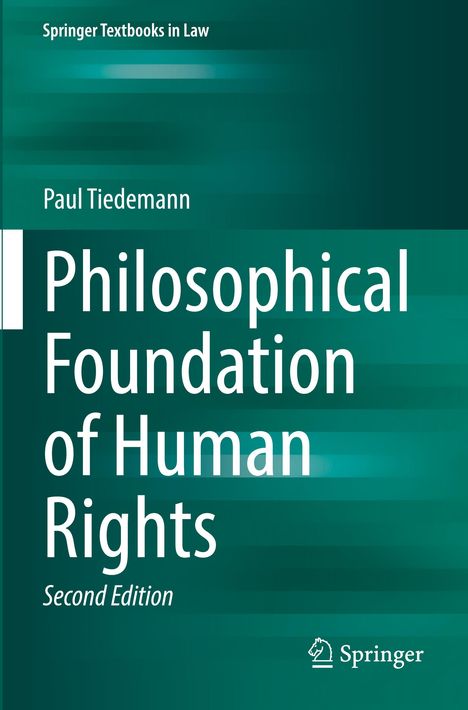Paul Tiedemann: Philosophical Foundation of Human Rights, Kartoniert / Broschiert
Philosophical Foundation of Human Rights
(soweit verfügbar beim Lieferanten)
- Verlag:
- Springer, 10/2024
- Einband:
- Kartoniert / Broschiert, Paperback
- Sprache:
- Englisch
- ISBN-13:
- 9783031322945
- Artikelnummer:
- 11998949
- Umfang:
- 436 Seiten
- Nummer der Auflage:
- 24002
- Ausgabe:
- Second Edition 2023
- Gewicht:
- 657 g
- Maße:
- 235 x 155 mm
- Stärke:
- 24 mm
- Erscheinungstermin:
- 8.10.2024
- Hinweis
-
Achtung: Artikel ist nicht in deutscher Sprache!
Weitere Ausgaben von Philosophical Foundation of Human Rights |
Preis |
|---|
Klappentext
Introduction.- Utilitarian and Aristotelian Approach.- The Social Contract Approach.- The Human-Dignity-Approach.- The Human-Dignity-Principle I.- The Human-Dignity-Principle II.- From Human Dignity to Human Rights.- Human Rights concerning the Protection of Physical and Mental Integrity.- Rights under Detention.- Human Rights concerning the protection of Intellectual Integrity.- Human Right to Privacy.- Human Right to the Freedom of Conscience.- Human Right to Spiritual Freedom.- Human Right to Life.- Social Human Rights.- The Right to Asylum.- Fake Human Rights.- The Principle of Liberty.- The Principle of Equality.- Rights in Conflict.- Do you still remember - the answers.
Biografie
Paul Tiedemann, geboren 1950, promovierter Jurist und promovierter Philosoph, ist Richter am Verwaltungsgericht Frankfurt am Main und Lehrbeauftragter für Rechtsphilosophie an der Universität des Saarlandes.

